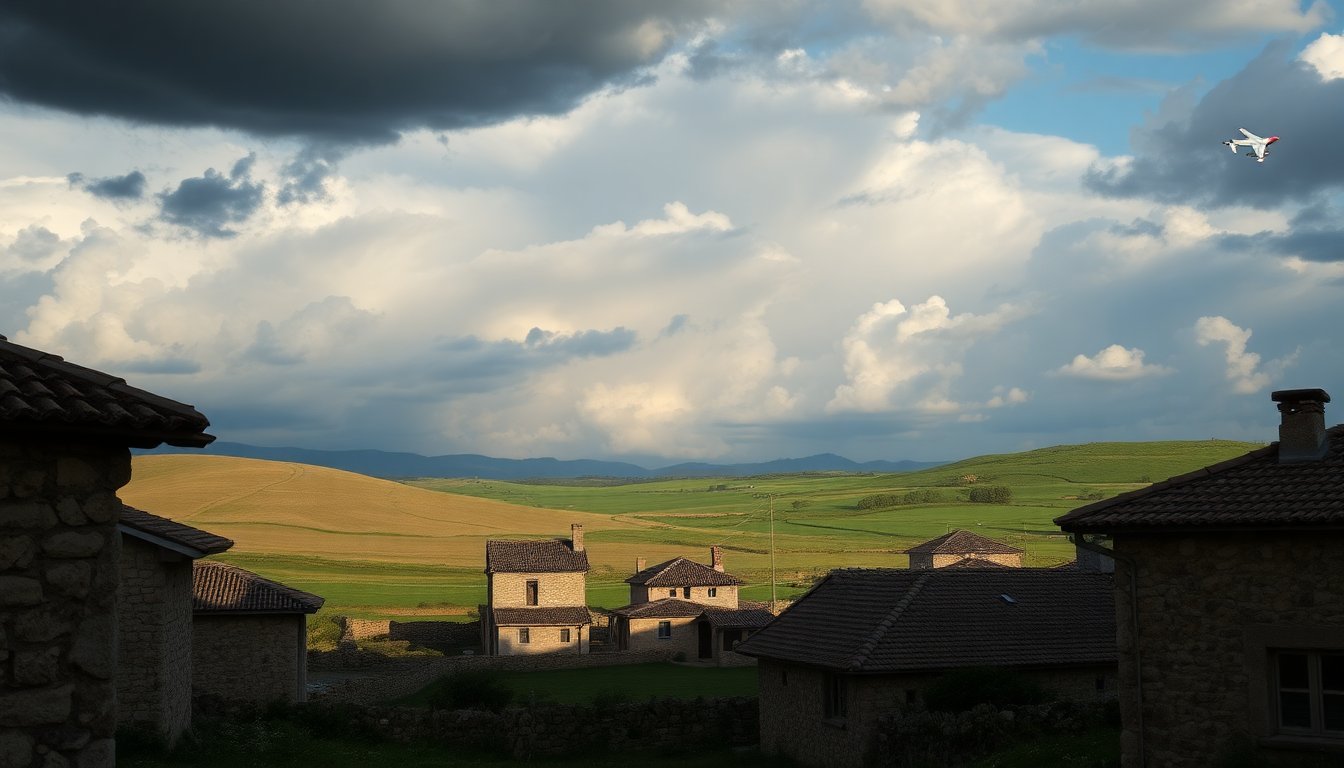Table of Contents
Recent airstrikes by Israeli forces in southern Lebanon have intensified fears among residents and raised alarms regarding civilian safety. This military escalation, occurring despite a ceasefire established in November, has led to heightened tensions between Israel and the militant group Hezbollah.
On Thursday, Israeli fighter jets targeted towns such as Tayba, Tayr Debba, and Aita al-Jabal, issuing warnings for residents to evacuate to safe distances. The Israeli military claims these strikes are aimed at dismantling Hezbollah’s military infrastructure, which they assert has been reestablishing itself over the past year.
Impact on Local Communities
The airstrikes have inflicted damage on civilian infrastructure, including a local ironworks business in the southern town of Abbasiyeh. Ahmad al-Kayyal, the owner, expressed distress over the loss of his shop that supported several families. He lamented, “What does a blacksmith do? For heaven’s sake, it’s about creating useful items for the community.” Such losses highlight the profound impact of military actions on local economies and livelihoods.
As the strikes continue, Lebanon’s health ministry has reported numerous casualties since the ceasefire took effect, with over 270 deaths and approximately 850 injuries attributed to Israeli military operations. These figures have drawn attention to the potential humanitarian crisis in the region, despite claims by the Israeli government that their operations are targeted solely at military assets.
Political Ramifications
Amidst the military activity, Lebanese Prime Minister Nawaf Salam’s government is grappling with the challenge of disarming Hezbollah. During a recent cabinet meeting, Information Minister Paul Morcos indicated that progress was being made by the Lebanese army, albeit with persistent obstacles due to ongoing Israeli hostilities. Lebanese President Joseph Aoun has emphasized the need for a mutual ceasefire, stating that “every time Lebanon expresses its openness to peaceful negotiations, Israel intensifies its aggression.”
Hezbollah, while having refrained from direct attacks on Israel since the ceasefire, maintains that it has the right to resist what it perceives as Israeli occupation. The group’s leaders have pledged to support the Lebanese army in its efforts, creating a complex dynamic between state and non-state actors in the region.
International Influence and Responses
The situation has drawn international scrutiny, particularly from the United States, which has implemented sanctions targeting financial operations linked to Hezbollah. The U.S. Treasury Department announced measures aimed at disrupting the flow of funds from Iran to Hezbollah, specifically through businesses that allegedly facilitate money laundering.
With both Israel and Lebanon accusing each other of violating the ceasefire, the situation remains precarious. The ceasefire followed a series of escalations that began with the Hamas-led attack on Israel in October, which triggered a retaliatory response from Hezbollah. The ongoing exchanges of fire culminated in a full-scale war by September, making the restoration of peace increasingly difficult.
Future Prospects
As military actions continue, the prospect of future negotiations remains uncertain. President Aoun has expressed willingness to engage in discussions to end the conflict, but emphasizes that these negotiations must be reciprocal. “Any talks cannot be one-sided; they require mutual will, which is still lacking,” he stated, highlighting the complexities of diplomacy in a region fraught with mistrust and historical grievances.
Meanwhile, the Lebanese army is preparing to bolster its presence in the south, aiming to establish control over armed groups outside of state authority. Officials hope that increased military strength will deter further incursions and help stabilize the region, but the long-term effectiveness of such measures in the face of ongoing Israeli military operations remains to be seen.


